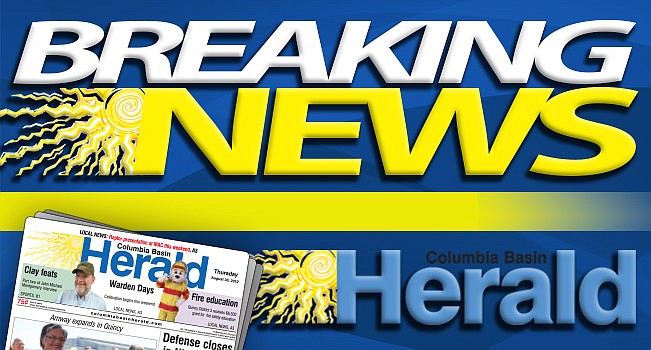EPA cites SGL, reaches settlement at Moses Lake plant
SEATTLE — The U.S. Environmental Protection Agency (EPA) has reached a settlement with SGL Automotive Carbon Fibers in a case involving violations of federal emergency planning, reporting and public notification laws at the company’s Moses Lake facility, according to a release from the EPA.
The violations that reportedly took place at SGL’s Moses Lake plant included failing to report storage of nitrogen and ammonium bicorbonate, and unpermitted release of hydrogen cyanide and ammonia.
There was no environmental or health-related danger caused by the emissions release at any time, according to a prepared statement from Philipp Stieffenhofer at SGL’s Corporate Communications office.
Stieffenhofer stated the alleged violations included failing to report storage of nitrogen and ammonium bicarbonate, as well the unpermitted release of hydrogen cyanide and ammonia above given thresholds.
"As part of the settlement, SGL ACF has agreed to pay a penalty of $125,000 and implement a $374,949 Supplemental Environmental Project (SEP) that includes purchasing hazmat response equipment for the Moses Lake Fire Department ($71,347) and upgrading the facility’s power outage backup system ($303,650)," he stated.
According to the EPA announcement, ammonia and-or hydrogen cyanide — "dangerous gases" — were released to the atmosphere from SGL’s Moses Lake facility on 10 occasions from May 2012 to June 2014, but the company failed to report the releases to the National Response Center, the local emergency planning committee and the state emergency response commission. SGL also reportedly "failed to perform timely reporting of on-site storage of chemicals for calendar years 2011, 2012, and 2013," per the EPA release.
The Emergency Planning and Community Right to Know Act (EPCRA) requires companies to immediately report unregulated releases that exceed a defined reportable quantity threshold. Close compliance with the EPCRA provides "the public and local governments with valuable information concerning potential chemical hazards" in their communities, according to the EPA.
Ed Kowalski, director of EPA’s office of compliance and enforcement in Seattle, said the parameters of the settlement will be beneficial to workers at SGL’s Moses Lake facility, as well as the general community.
"SGL’s settlement action will directly help the Moses Lake community by providing the Moses Lake Fire Department with upgraded hazmat response equipment." Kowalski said, via the EPA’s release. "They will also perform internal improvements that should reduce or eliminate harmful releases. Failure to report dangerous chemical releases in a timely way and having stored chemicals go unreported poses a public health risk, not only at the plant, but for the local community and responders as well."
Moses Lake Fire Department Chief Brett Bastian said the fire department has been working with SGL’s plant safety personnel for "the better part of eight or nine months" to identify the MLFD’s equipment needs. Bastian said the equipment that SGL will purchase and donate to the MLFD will include: air packs, self-contained breathing apparatuses, hazmat entry suits, test kits for suit certification, and monitoring equipment.
The equipment will be all new to the fire department’s inventory and will enhance the department’s ability to respond to hazmat situations, Bastian said.
"Right now, we don’t have a lot of hazardous materials equipment," he said. "We are looking at this equipment donation … as a stepping stone to actually being able to provide some hazardous materials response. Right now, our capability to even provide hazardous materials rescue is very limited because we don’t have equipment that allows us to actually get into hazardous materials environments."
Bastian said the Moses Lake City Council still has to approve the donation before the fire department can officially accept the equipment, but he anticipates the process being complete soon.
SGL Automotive Carbon Fibers was founded in 2009 as a joint effort between the BMW Group and SGL Group. It provides carbon fiber materials exclusively for the BMW group.
Become a Subscriber!
You have read all of your free articles this month. Select a plan below to start your subscription today.
Already a subscriber? Login



